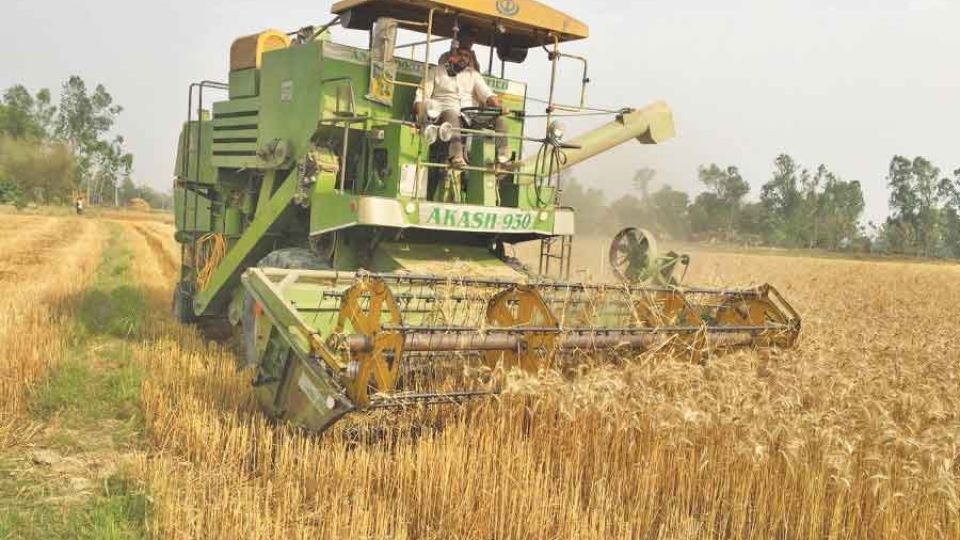January 8, 2025
KATHMANDU – The Indian government has approved the export of 200,000 tonnes of wheat to Nepal under a quota system, but domestic traders said this is too late and the quantity is not sufficient.
India’s Director General of Foreign Trade issued the notification on Saturday.
According to the notification, Nepal has been granted quota privileges, and exports are permitted through National Cooperative Exports Limited of India.
India imposed a ban on wheat exports in May 2022, citing its own needs.
Since the ban, Nepali traders received 50,000 tonnes in the first lot under the quota system.
The Indian authorities later issued 200,000 tonnes in the second lot, but traders did not import all of it.
This is the third quota issued by India for Nepal.
“We requested 200,000 tonnes this time, observing past scenarios,” said Baburam Adhikari, spokesperson at the Ministry of Industry, Commerce and Supplies.
Wheat is Nepal’s third most common cereal crop after paddy and maize.
However, traders said they had requested 300,000 tonnes of wheat through the industry ministry six months ago, based on demand from flour mills.
“We requested that amount six months ago. And even after six months, India has designated just one company—National Cooperative of Exports Limited—to supply the consignment,” said Radheshyam Agrawal, general secretary of the Nepal Flour Mills Association.
National Cooperative Exports Limited of India is a multi-state cooperative society that serves as an umbrella organisation for exports from the cooperative sector in India.
Adhikari said the Indian government usually entrusts supply management to the National Cooperative of Exports Limited.
Agrawal said that while allowing exports through the quota system, India should have allowed traders to buy wheat from suppliers of their choice.
“There are many hassles dealing with a state-owned company. So we cannot say when the wheat will arrive, and Nepali traders may even reject the allocated quota.”
“Before this, when India allowed wheat export through the quota system, we were importing the grains by contacting different private parties in India. It was an easier process. But this time, as the Indian government has already fixed the exporter, it has created a big dilemma,” said Agrawal.
As India has restricted wheat exports for a long time, domestic traders have turned to other potential markets.
“We have started importing wheat from Australia and Ukraine,” said Agrawal.
Wheat is being imported from Russia, too,” said Agrawal.
The consignments ordered from Australia and Ukraine have already arrived, while others are on the way.
While importing wheat from India, the Nepal government imposes a 5 percent duty, but when it is imported from other countries, the duty is doubled.
The government imposes a 10 percent duty while importing from third countries.
Nepal’s wheat import fell 98.48 percent in the first five months of the current fiscal year compared to the last fiscal year.
According to the Department of Customs, Nepal imported 1,491 tonnes of wheat worth Rs71.16 million during the review period.
During the review period, Nepal imported 488 tonnes of meslin worth Rs24.28 million from Australia and 1,001 tonnes worth Rs46.78 million from Ukraine.
A mixture of wheat and rye sown and harvested together is known as meslin.
In trade, meslin is classified as wheat. Rye is a member of the wheat tribe and is closely related to barley and wheat.
Forty-two flour mills are operating in the country.
The flour mills require 800,000 to 900,000 tonnes of wheat and around 1.2 million tonnes go to manufacturers of biscuits and noodles, including animal feed.
“We will meet with the Industry Ministry officials regarding importing wheat from National Cooperative of Exports Limited, India,” said Agrawal.
Importing from the National Cooperative of Exports Limited brings with it several challenges, including issues with quality and price, and logistics, such as how the consignment will be delivered to the border point.
Traders also said the price of wheat has risen to Rs5,200-5,300 per quintal from Rs5,000.
Before India’s restriction, a 50-kg bag of refined flour cost Rs3,200 to Rs3,300. Once the new harvest arrives, prices are expected to stabilise.
Since traders have begun importing from other countries and the new harvest is arriving soon, there is no problem with stock for now, said traders.
In 2022 and 2023, India banned exports of non-Basmati white rice, imposed a 20 percent duty on parboiled rice exports and fixed a minimum export price for Basmati at $950 per tonne, creating a stir in global markets as prices soared.
The move was driven by expectations of lower domestic production. However, over the past two months, India has removed several of these rice export restrictions.


